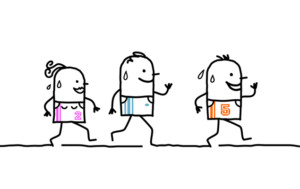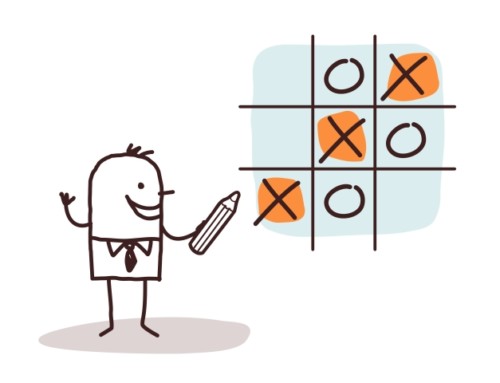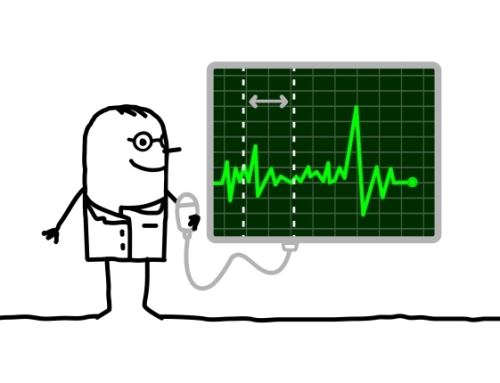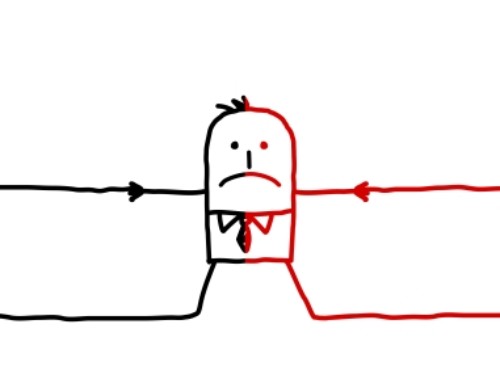In this article, I discus ideas for how to prevent little annoyances and stresses from interfering with the enjoyment of your day.
A favourite book of mine is Don’t Sweat the Small Stuff by Dr. Richard Carlson. As the title suggests, Dr. Carlson offers advice on how not to let little things bother you. These small annoyances and stresses can become big problems when they interfere with your accomplishing tasks and enjoying activities during your day.
In my practice as psychologist, I have offered my clients ideas to help them not sweat the small stuff which I also use in my own life. These ideas complement the excellent strategies Dr. Carlson discusses in his book. I will discuss my ideas for how not to sweat the small stuff in the following sections.
Predict, prepare and practice
It’s easier not to sweat the small stuff if you’re prepared for challenging situations which might lead you to sweat the small stuff. The PR plan is a tool you can use to be prepared for these situations so that you are less likely to sweat the small stuff when they happen.
The three steps of the PR plan are predict, prepare and practice. You first predict the specific challenges you may face in situations during your day such as at work or school, in social interactions and while shopping or driving. The prepare step entails identifying how you can cope with the situation so that its negative emotional effect on you is reduced. In the practice step, you rehearse—mentally or with role-playing—responding to the predicted challenges with your prepared coping strategies.
For example, for a food shopping situation you might predict challenges like having to wait in a long line at the checkout counter and not finding items you need. You could prepare strategies to handle these challenges like bringing music to listen to or a book to read in line and having substitute items you can buy or going to another store as a way to handle the challenge of not being able to find the items you want. The PR plan focuses on the idea that it is easier not to sweat the small stuff if we expect adversity and have a plan to handle it.
Keep things in perspective
Keeping things in perspective will help you not to sweat the small stuff. Doing so can be aided by using a skill from cognitive behavioural therapy (CBT) known as the thought record. This is a tool in which you identify negative ‘hot thoughts’ in situations which lead to strong emotional reactions. Thought records help you to look for the evidence which supports and does not support your hot thoughts which tend to be beliefs rather than complete facts.
Critically evaluating your hot thoughts in this manner allows you to replace them with more accurate and less negative ‘balanced thoughts’ which help to lower the intensity of your emotional reactions in situations. Doing so will make it easier for you not to sweat the small stuff. For example, you might have hot thoughts as a result of making a relatively minor error at work or in a social situation such as, ‘I embarrassed myself’, ‘I’m incompetent’, and ‘they won’t like me’. Balanced alternatives to these hot thoughts might include, ‘Everyone makes mistakes so it’s unlikely that I’ve embarrassed myself by making one,’ ‘Every competent person I know makes mistakes’ and ‘Making a mistake is unlikely to cause people not to like me. In fact, everyone who likes me does so in spite of their knowing that I’ve made mistakes.’

Do urge surfing
When relatively minor annoyances and stresses occur during the day, you will often experience urges to act on them. Unfortunately, doing so may add to your distress in a manner which leads you to sweat the small stuff.
At these times, it is easy to think that acting on your urges is the only way to get these urges to go away and get on with your day. In fact, if you practice ‘urge surfing’ you will discover that not acting on urges usually leads them to decrease in intensity and ultimately go away. To provide a frame of reference, urge surfing is also an effective strategy used by people who have urges to use a substance like alcohol or drugs which they are trying to refrain from using.
Urge surfing stems from the fact that urges will occur, peak and then pass if you don’t act on them. If you practice urge surfing with minor annoyances and stresses, you will be better able not to sweat the small stuff.
Park it and deal with it later
We sometimes sweat the small stuff because something is on our minds and it the thoughts won’t leave us alone. In these instances, ‘park it and deal with it later’ is a good strategy to use.
This strategy entails committing to dealing with whatever is on your mind at a later time—usually later the same day or the next day. If you do so, whatever is on your mind should be less likely to interfere with your focus on whatever activity you are engaged in at the time.
Expect minor annoyances and stresses to occur
Encountering relatively minor annoyances and stresses are unavoidable as you go about your daily routine. They are, in effect, ‘the price of admission’ for you to engage in activities which bring you enjoyment and fulfilment. If you focus on expecting minor annoyances and stresses to occur, you can rebound from them better when they happen and get back to focusing on your enjoyable and fulfilling activities.
Using the principles of acceptance and commitment therapy (ACT) can guide you in this endeavour. This perspective focuses on accepting the minor and annoyances and stresses of daily life by accepting the emotions and thoughts you experience at the time while staying committed to engaging in valued activities in the areas of work/school, relationships, personal growth and leisure.
Using strategies like ‘breathing into’ your emotions and noticing your thoughts while keeping them in perspective will make it easier for you to accept the ‘small stuff’ which comes your way without sweating it. You can then return to focusing on the ‘big stuff’ which brings you enjoyment and fulfilment.
May you not sweat the small stuff,
-Dr. Pat




Leave A Comment